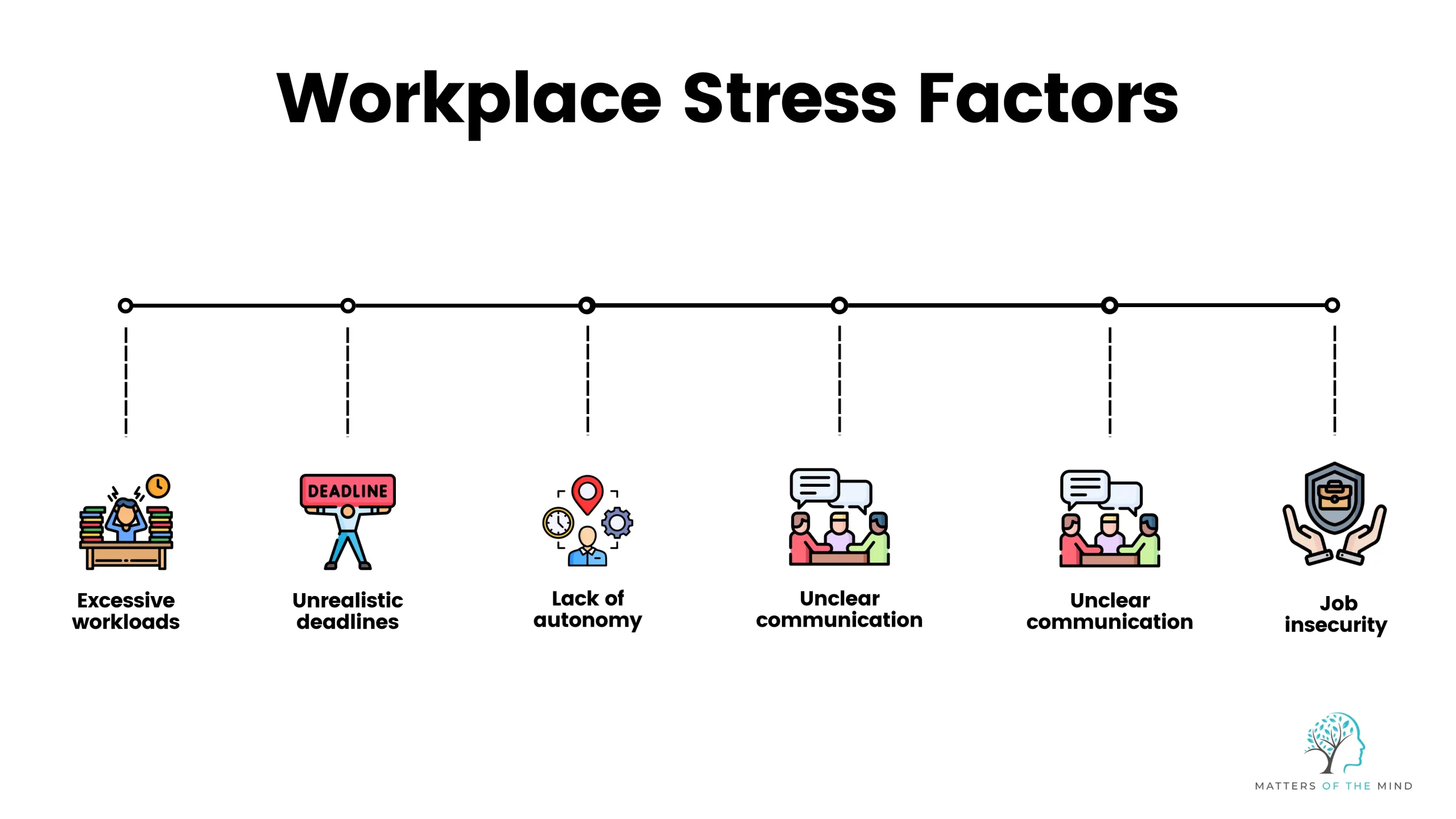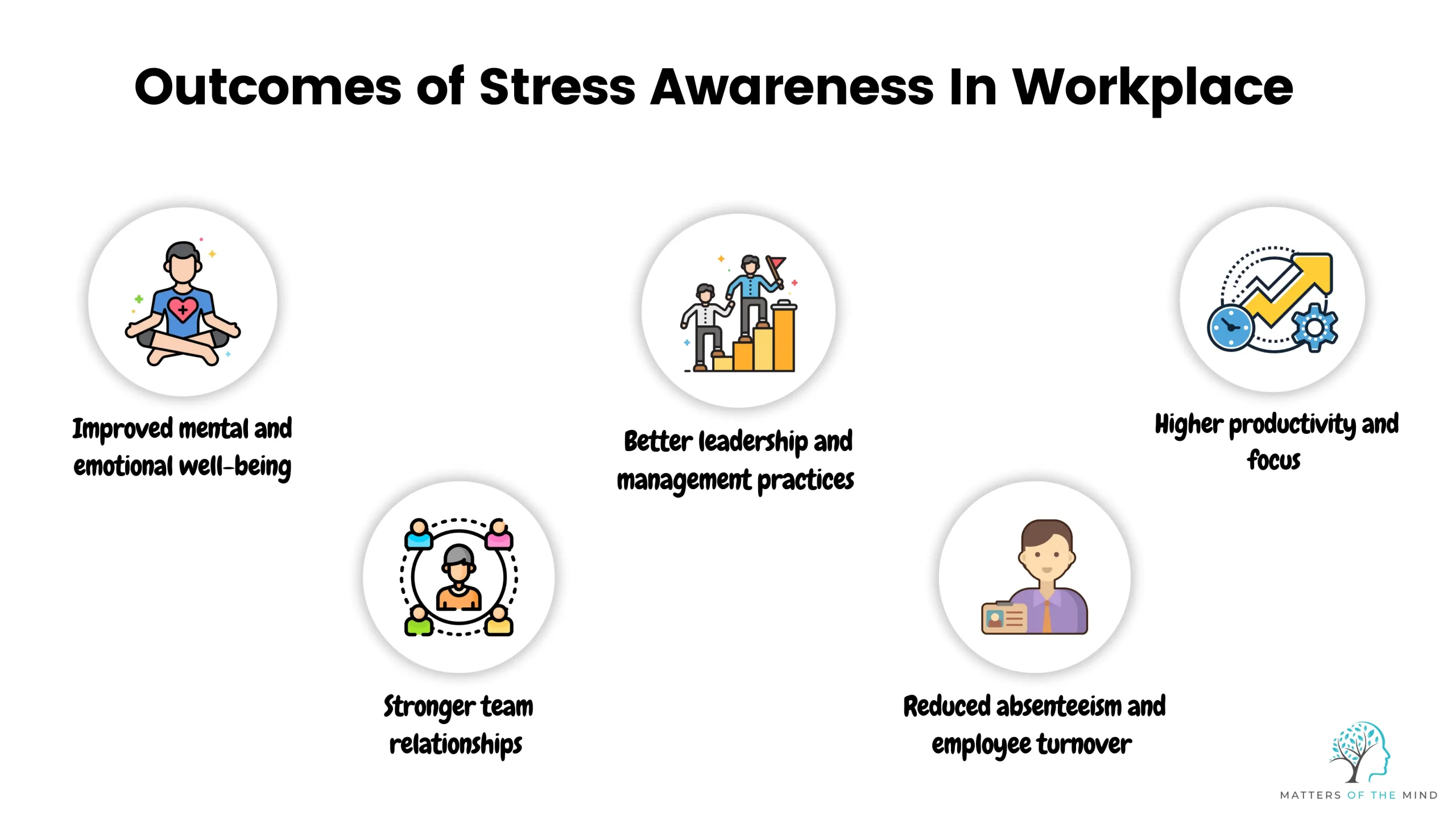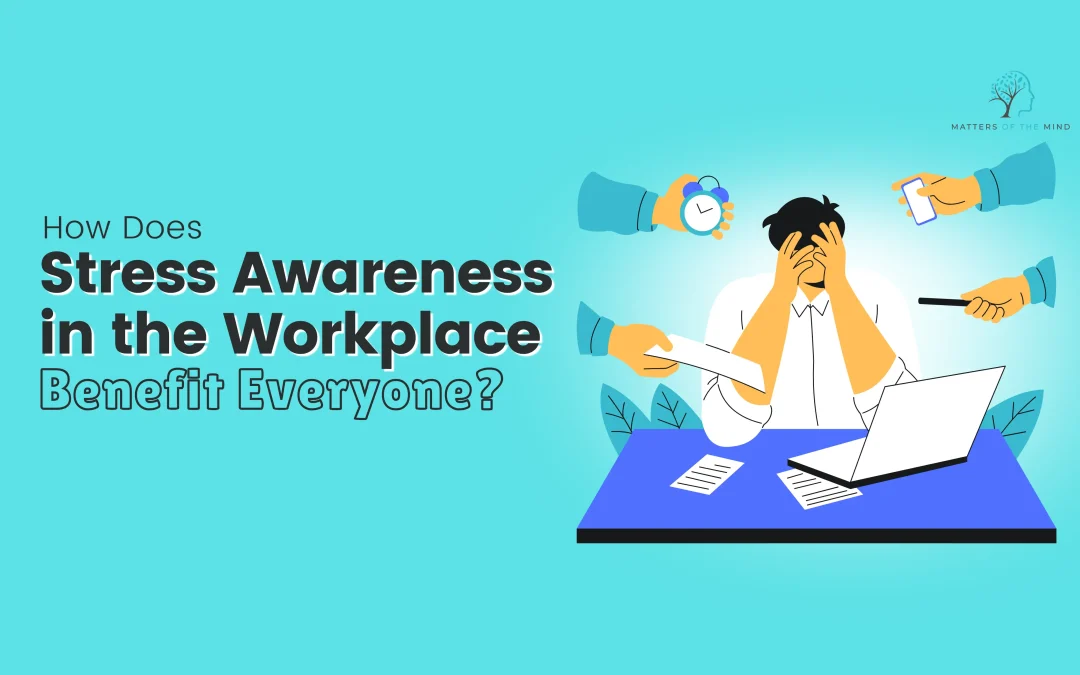Stress has become a constant presence for all individuals. Tight deadlines, high expectations, and the pressure to stay connected beyond working hours often create a cycle of exhaustion and unnecessary burnout. However, many organisations overlook that stress doesn’t just affect individuals; it shapes the entire workplace atmosphere.
That’s why National Stress Awareness Day, observed first Wednesday of every November, serves as a powerful reminder of understanding and addressing stress, especially in the workplace. It’s a day to pause, reflect, and start conversations about how awareness can lead to a healthier, more resilient workplace environment.
Let’s go in-depth into this concept, and learn how stress awareness can benefit every employee in the workplace.
What is Workplace Stress?
Stress is a part of an individual’s emotional structure. A manageable level of stress can enhance motivation and focus, but when it comes to persistent stress, it starts affecting mental, physical, and emotional health.

In the workplace, stress often arises from:
- Excessive workloads
- Unrealistic deadlines
- Lack of autonomy
- Unclear communication
- Interpersonal conflicts
- Job insecurity
If left unaddressed, these factors can lead to fatigue, irritability, difficulty concentrating, absenteeism, or even burnout. Over time, chronic stress impacts not only an individual’s mental health but also the organisation’s overall structure and culture.
What is Stress Awareness In the Workplace?
Stress awareness in the workplace is about creating an environment where employees and leaders are supported, educated, and encouraged to acknowledge and manage stress effectively.
It’s a proactive approach, recognising stress not as weakness, but as a human experience. Stress awareness initiatives may include training programs, open discussions, mental health workshops, or even something as simple as managers checking in with their teams. The goal is to cultivate understanding, compassion, and openness, key elements of emotional safety in any organisation.
The Benefits of Stress Awareness

1. Improved mental and emotional well-being
When people become aware of their stress triggers and symptoms, they can take early action, whether that means setting boundaries, practicing relaxation, or seeking professional guidance. This awareness reduces the likelihood of burnout and mental exhaustion.
As a result, employees feel calmer, more balanced, and better able to handle challenges. A workplace that supports this process fosters a sense of security, where mental health is prioritised at work.
2. Stronger team relationships
One of the most valuable outcomes of stress awareness is improved empathy and connection among colleagues. When people are encouraged to talk openly about their challenges, it helps dissolve stigma and strengthens trust.
Teams that practice open communication tend to be more cooperative and understanding, even in high-pressure situations. Over time, this cultivates psychological safety, a foundation for collaboration, innovation, and genuine human connection.
3. Higher productivity and focus
Chronic stress is one of the biggest barriers to concentration and creativity. It can reduce cognitive clarity and can make even simple decisions overwhelming. Therefore, when stress is recognised and managed, individuals can think more clearly, make better decisions, and maintain steady innovation.
Organisations that promote stress awareness often see improved productivity, not because people are pushed harder, but because they are supported more effectively.
4. Reduced absenteeism and employee turnover
Burnout and stress-related problems are leading causes of absenteeism. Employees who feel unsupported are likely to disengage and lose interest in their work.
By integrating stress awareness practices, such as regular check-ins, flexible work arrangements, and mental health resources, organisations can help employees stay healthier and more engaged. A culture that values well-being fosters loyalty, retention, and a sense of shared purpose.
5. Better leadership and management practices
Stress awareness isn’t just for employees; it’s equally crucial for leaders. Managers who recognise signs of stress in themselves and their teams are better able to intervene with empathy and balance.
Effective leaders create space for honest dialogue, delegate fairly, and model healthy work habits. When leaders show vulnerability and understanding, they encourage others to do the same, creating a ripple effect of openness and trust.
Practical Steps to Promote Stress Awareness
Building a stress-aware workplace begins with consistent and effective actions. Some of the effective ways include:
- Campaigns: Take advantage of days like Stress Awareness Day to start meaningful conversations about stress, mental health, and coping tools.
- Workshops and seminars: Provide training on stress management techniques, mindfulness, and resilience practices.
- Open communication: Encourage employees to discuss their conversations openly and to be listened to without judgment.
- Balanced workloads: Evaluate task distribution and ensure that expectations align with available resources.
- Recognition and appreciation: Simple acknowledgment of effort can ease stress and boost morale.
- Access to support: Offer counseling, wellness programs, or stress management resources to those in need.
Organisations that consistently invest in awareness and empathy create a positive environment for effective stress management.
Make Stress Awareness an Everyday Priority
Stress awareness day offers a valuable opportunity to focus on mental well-being, but real progress happens when awareness becomes part of daily workplace culture. This includes normalising check-ins about well-being, encouraging breaks without guilt, and viewing mental health support as a shared responsibility. When employees feel seen and heard, they’re more humanly connected to work and other colleagues.
Stress awareness isn’t about eliminating all pressure; it’s about cultivating resilience and understanding. When organisations build awareness into their foundation, they create an environment where both people and productivity thrive.
Conclusion
Stress is a natural part of modern work life, but ignoring it can quietly erode both individual well-being and team performance. As National Stress Awareness Day reminds us each year, understanding and understanding isn’t just about managing pressure; it’s about fostering a culture where openness, empathy, and support thrive.
When workplaces make stress awareness an everyday practice, they empower people to bring their best selves to work, mentally, emotionally, and professionally. The result is a healthier, more motivated, and more resilient organisation where everyone benefits.
Struggling to manage stress at work or in your personal life?
Chronic stress can slowly drain your energy and confidence, but with the right support, recovery is possible.
Connect with Dr Kavita Deepak-Knights to begin your journey toward lasting emotional well-being.


